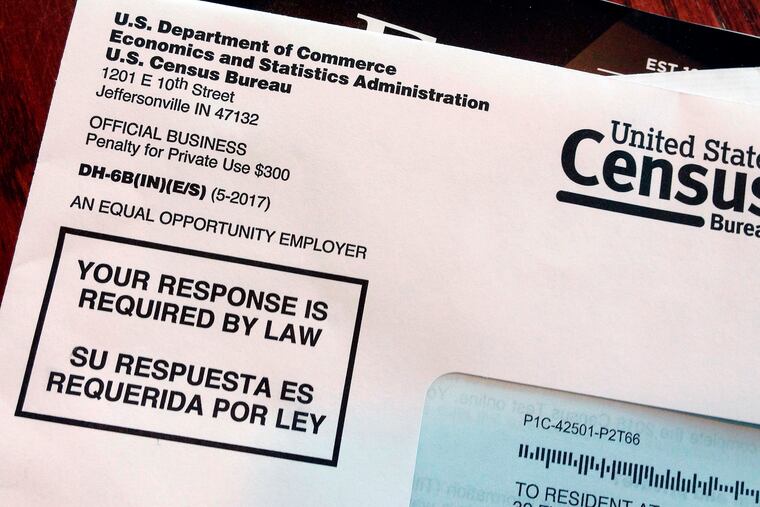Supreme Court to decide whether the 2020 Census can ask about citizenship
The U.S. Supreme Court agreed Friday to decide whether the Trump administration can ask residents for their citizenship status in the 2020 Census, a question that could change how the federal government distributes billions of dollars to communities.

The U.S. Supreme Court agreed Friday to decide whether the Trump administration can ask residents for their citizenship status in the 2020 census, a question that could change how the federal government distributes hundreds of billions of dollars to communities.
Oral arguments are scheduled for the second week of April, according to the court’s order. The justices should decide the issue by late June. The citizenship question has been destined for the high court since the administration announced its intention in March to include it in next year’s census for the first time since 1950.
The justices will hear the administration’s appeal of a lower court ruling that blocked the question. The administration bypassed the federal appeals court to speed a decision, since the Census Bureau must soon finalize questionnaires.
Philadelphia, New Jersey, and Pennsylvania are among the dozens of states, cities, and counties that have filed more than a half-dozen lawsuits to prevent inclusion of the question. The governments fear that including the inquiry about citizenship will scare residents and deter them from completing the questionnaires, the results of which determine how the federal government distributes hundreds of billions of dollars in funding. Population counts from the census also determine the allocation of seats in the U.S. House and the boundaries of voting districts.
Mayor Jim Kenney said a question about citizenship “politicizes an essential element of our democracy.”
“Adding a question about U.S. citizenship to the 2020 census will add unfair obstacles to the constitutional mandate that all people be counted," Kenney said in a statement. “This is yet another example of the Trump administration inciting fear among our immigrant communities and pushing them further into the shadows.”
Kenney reminded Philadelphians that the information they provide in the census is federally protected and can’t be used against them. Local and state governments and advocacy groups have been trying to calm immigrants’ fears about telling the Census Bureau they are not citizens while the issue plays out in court.
The Census Bureau itself has said that adding a citizenship question would likely decrease responses in non-citizen households. An estimated 261,000 residents in the Philadelphia region are not citizens, about 5 percent of the total population.
The Trump administration seeks to include the question over objections from the bureau about both depressed counts and increased costs.
Last month, a federal judge in New York ruled that the administration’s attempt to add the question was unlawful. The judge in the U.S. District Court for the Southern District of New York said Commerce Secretary Wilbur Ross, who oversees the census, overstepped his authority and violated federal law.
The American Civil Liberties Union said in a statement Friday: “Adding this question would cause incalculable damage to our democracy. We look forward to defending our victory.”
The government says the question will give a more accurate count of residents who are eligible to vote. But the federal judge said the federal government’s stated reasoning contradicts evidence provided by the Census Bureau and federal law, which says the government should use administrative records, not direct questions in a census, when possible to collect information.
Although lawsuits over the citizenship question are ongoing and include a trial in San Francisco that was nearing its conclusion Friday, the Supreme Court will decide the issue with the case out of New York.
The liberal American Constitution Society said Friday the citizenship question would mean people of color and immigrants will go uncounted, meaning these communities will get less money and less representation in Congress. The organization urged the Supreme Court to block the question, but acknowledged that due to the court’s 5-4 conservative majority, “that may be a faint hope.”
The Associated Press contributed to this article.